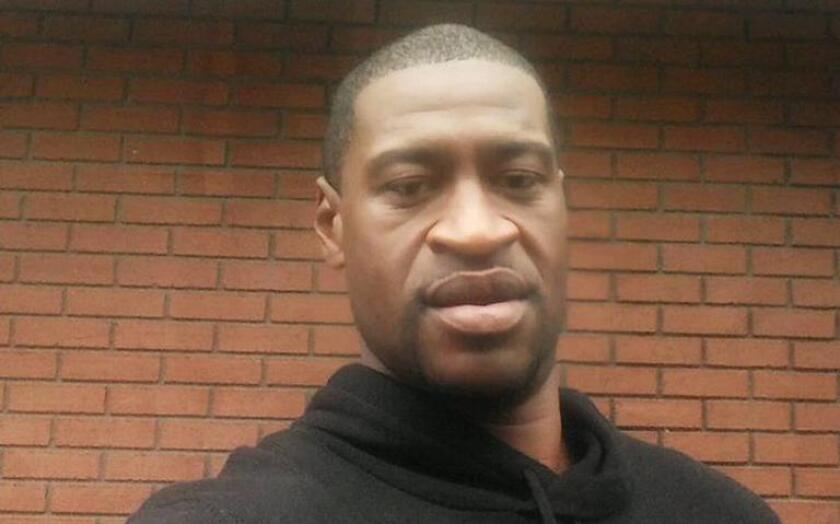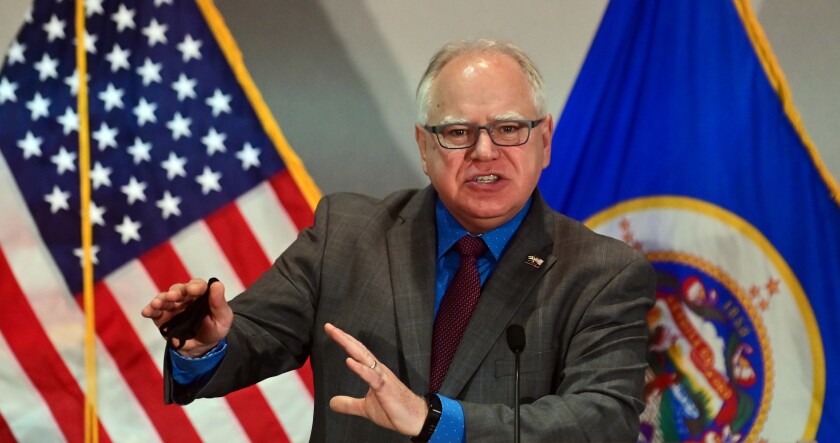ST. PAUL -- It has been one year since George Floyd took his final steps, walking out of the Minneapolis convenience store Cup Foods into the early summer evening of May 25, 2020.
In his final moments, as former-Minneapolis Police officer Derek Chauvin kneeled on his neck for nine minutes and 29 seconds, Floyd pleaded for his life and said over and over what would become a rallying cry for the year’s renewed racial justice movement: “I can’t breathe.”
ADVERTISEMENT
In the year since Floyd died, Americans took to the streets to demand justice and an end to systemic racism. Lawmakers debated in marble chambers what action they needed to take, if any at all. that Americans by and large want to see change in the justice system.
Chauvin was on all counts of murdering Floyd -- the first conviction of its kind in American history, with a white police officer found guilty of murdering a Black person while on duty.
Just after the verdict was announced on April 20, Minnesota Attorney General Keith Ellison -- who led the state’s prosecution team -- told reporters that "we cannot call (the verdict) justice, because justice implies true restoration."
"But it is accountability, which is the first step toward justice," he said.
Floyd is far from the first Black American to be killed at the hands of police. At his memorial site in South Minneapolis, a mural of him lists the names of people of color who were killed by police before him: Tamir Rice, Philando Castille, Freddie Grey and so on. Above the list, set in the middle of a sunflower, the mural reads, “Say our names.”

ADVERTISEMENT
Enid Logan, a sociology professor at the University of Minnesota who studies U.S. race relations and politics, told Forum News Service that watching the past year unfold from the Twin Cities has been traumatizing. When masses of Americans seemed to open their eyes to the realities of racism last summer, she said it was “frustrating and weird.”
“We knew this was going on the whole time. We've been telling you it's going on the whole time,” she said. “Are you kidding me? You doubted?”

Less than a year from Floyd’s death, another Black man -- 20-year-old Daunte Wright -- was killed on April 11 by a police officer just outside of Minneapolis. With Floyd’s death still fresh, activists and lawmakers cited Wright’s death so soon after as evidence that laws passed in 2020 simply did not go far enough.
A divided Legislature
Following Floyd’s death, Minnesotans not only in the Twin Cities, but throughout Greater Minnesota called for action. The streets of Duluth, Rochester, Fargo-Moorhead and more were filled with demonstrators demanding accountability and change.
ADVERTISEMENT
It took Minnesota’s notoriously politically divided Legislature on a slate of police reform bills -- a watered-down version of a package initially introduced by the People of Color Indigenous (POCI) Caucus. It outlawed chokeholds, banned warrior-style training, established greater de-escalation training for officers and put in place mechanisms to investigate police-involved deaths and sexual assaults.
Legislative leaders touted the package as a great compromise between Republicans and Democrats, and a step forward for public safety in the state. But as soon as , legislators of color and activists were already questioning whether the package went far enough.
Nine months later, Wright was killed. of last summer’s package being inadequate.
State Sen. Patricia Torres Ray, D-Minneapolis, was one of seven senators in July who voted against the bill package, saying she couldn’t support an inadequate bill. At an April news conference, she said the July package “would not have prevented the killing of George Floyd, nor did it prevent the killing of Daunte Wright on April 11, 2021.”
The POCI Caucus and Democrats to pass further police reforms, including bills that would end qualified immunity, direct officers to stop pulling drivers over for minor vehicle offenses, give families of police brutality victims access to video tapes of their incidents and more.
Following Chauvin’s conviction, Walz on the issue, vowing to get more statewide police reforms passed or use his position to “make sure that Minnesotans know who's holding up the progress that Minnesotans want."
But the bills didn’t make it through Minnesota’s Republican-controlled Senate before lawmakers left the Capitol on May 17.
ADVERTISEMENT

Senate Majority Leader Paul Gazelka, R-East Gull Lake, in April drew a line in the sand bills the Senate already shot down last year. He also said he would not pass a bill ending qualified immunity: a rule currently on the books granting legal protection to police officers, which limits people’s ability to sue for on-the-job misconduct.
And after Chauvin was found guilty, Gazelka questioned whether further reforms are necessary at all, saying the conviction was evidence that
Reacting to Gazelka’s statement, Logan told Forum News Service, “I don't see how you could think that.”
“Everyone knows that this is ongoing,” Logan said. “We had one conviction ever in our history. And this stuff is ongoing, it's rampant, it's seeming like an epidemic.”
Gridlock in Washington
The calls for change have echoed thousands of miles, reaching lawmakers in Washington who are facing public pressure to pass nationwide police reforms.
ADVERTISEMENT
But still, a year after Floyd’s death, Congress remains deeply divided on how to legislate a solution. The U.S. House in March passed the , but the bill package has since stalled in the U.S. Senate.
The bill would to policing across the country: banning chokeholds, ending no-knock warrants for federal drug cases, collecting data police misconduct cases and ending qualified immunity for police officers.
Proponents of the bill vowed to get it past the finish line by May 25, 2021: the one-year anniversary of Floyd’s death. But as of Friday, lawmakers signaled little hope of meeting that self-imposed deadline. White House Press Secretary Jen Psaki , “Yes, it’s unlikely.”
Psaki said the White House is in close touch with the bill’s top negotiators and “they still feel there’s progress being made,” just not as quickly as President Joe Biden and top proponents have hoped.
Among the bill’s staunchest proponents are Minnesota’s own Democratic U.S. Sens Amy Klobuchar and Tina Smith. With renewed focus on the bill after Chauvin’s conviction in April, the senators made the rounds on cable news programs to make its case.
“To me, you cannot have true justice when chokeholds and knees on the neck are still being considered legitimate in some places,” . “You cannot have true justice when a young kid can get stopped for an expired tag and then end up getting shot.”
Among the major hang-ups between Democrats and Republicans is the bill’s proposed end to qualified immunity. she’d be willing to break up parts of the mammoth bill in order to at least get some provisions through, saying, “We should not let perfection be the enemy of good.”
ADVERTISEMENT
“Can we not agree that we should be banning chokeholds, or that we should be banning the kind of no-knock warrant that resulted in the tragic murder of Breonna Taylor?” she asked.
With only a slim majority in the Senate, Democrats need to appease at least some Republicans in order to get the bill to Biden’s desk. If they can’t agree on qualified immunity now, Smith said she “understand(s)” but “I think it’s really wrong to walk away from the need for that reform.”
Cultural change
Away from the Capitol halls, Logan said a cultural shift has been making way in the general public’s understanding and view of race relations in America.
In the years since the Civil Rights Era, she said the “dominant paradigm of race” had been colorblindness: “that it's better not to see race… and racism is a thing of the past,” and that having conversations around race in of itself causes issues.
“I don't think people think that anymore,” she said. “Now, there is a broader understanding that this country has got some deep-rooted, systemic, or institutional racism, and that this stuff is patterned…. It's not just a case of a bad apple or two.”
“Now what that translates into, I'm not totally sure.”








